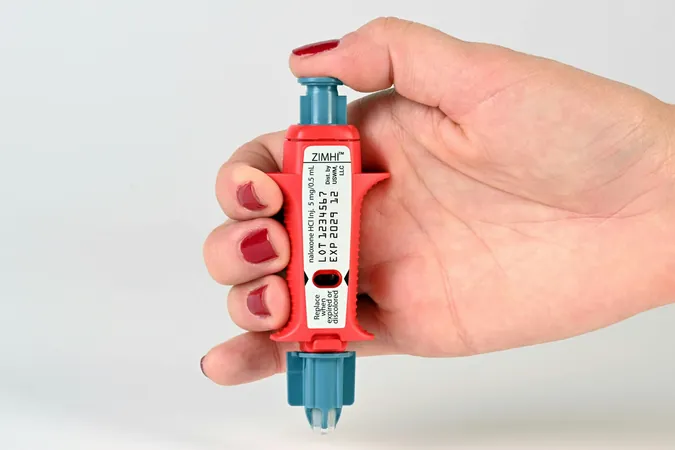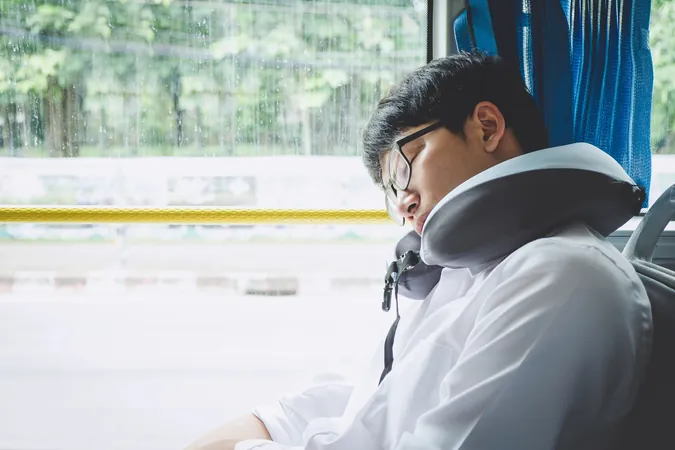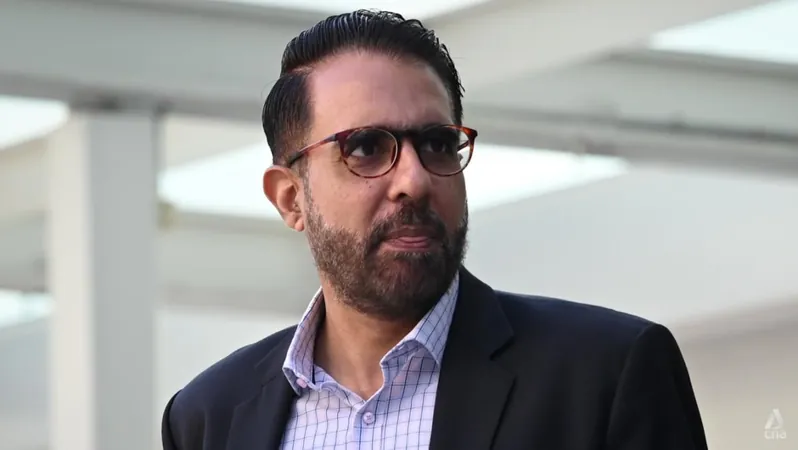
Vending Machines Revolutionize Naloxone Distribution, Boosting Access for Ex-Prisoners
2024-10-23
Author: Wei Ling
In a groundbreaking development for public health, especially in the realm of opioid overdose prevention, researchers at Rutgers University-New Brunswick have uncovered a novel approach to distributing naloxone, a life-saving nasal spray that reverses opioid overdoses. The study highlights how vending machines can significantly enhance the accessibility of this critical medication to former inmates, a group particularly vulnerable to overdose risks.
Historically, the intersection of incarceration and substance abuse has proved deadly. Previous studies revealed that approximately 20% of overdose deaths in major urban areas are linked to individuals recently released from jail. This stark reality underscores the urgent need for effective intervention strategies to combat the soaring statistics of opioid overdoses, which continue to devastate communities across the nation.
Dr. Grant Victor, an assistant professor and lead author of the study, pointed out the need for innovative solutions in overdose prevention. "While vending machines won't replace the warmth and care of harm reduction staff, they offer a low-cost, efficient method for providing essential medication like naloxone," he stated.
Taking a closer look at the study, the research team implemented naloxone vending machines in six county jails in Michigan as part of an initiative backed by a grant from the Centers for Disease Control and Prevention. Traditionally, inmates received naloxone only through property boxes upon release, but the transition to vending machines created an environment of anonymity and ease that appears to have increased their likelihood of taking the medication home with them. Each box contains two doses of Narcan, which typically retails for around $57, but were provided at no cost to inmates.
The results have been impressive—within just six months of introducing the vending machines, the distribution of naloxone boxes jumped by a staggering 63.5%, rising from 4,104 to 6,708 boxes.
One of the key takeaways from Victor's analysis is the potential of vending machines to break down the stigma often associated with drug use and overdose prevention. By allowing anonymous access to naloxone, these machines may reduce the barriers that deter individuals from seeking help. "The use of vending machines can create a no-judgment space where individuals feel safe accessing the medication they need," Victor noted.
This model not only shows promise for counties seeking to enhance public health initiatives but also offers a blueprint that could be utilized by institutions across the U.S. as they combat the ongoing opioid crisis. The findings encourage prison systems and public health organizations to rethink their strategies in distributing life-saving tools to individuals at a time when they are most at risk.
As communities grapple with the complexities of substance use and recovery, the implementation of naloxone vending machines could mark a pivotal shift in how we address overdose prevention. By embracing innovative solutions, we can hope to build a safer, healthier future for individuals exiting the prison system and reclaiming their lives.


 Brasil (PT)
Brasil (PT)
 Canada (EN)
Canada (EN)
 Chile (ES)
Chile (ES)
 España (ES)
España (ES)
 France (FR)
France (FR)
 Hong Kong (EN)
Hong Kong (EN)
 Italia (IT)
Italia (IT)
 日本 (JA)
日本 (JA)
 Magyarország (HU)
Magyarország (HU)
 Norge (NO)
Norge (NO)
 Polska (PL)
Polska (PL)
 Schweiz (DE)
Schweiz (DE)
 Singapore (EN)
Singapore (EN)
 Sverige (SV)
Sverige (SV)
 Suomi (FI)
Suomi (FI)
 Türkiye (TR)
Türkiye (TR)